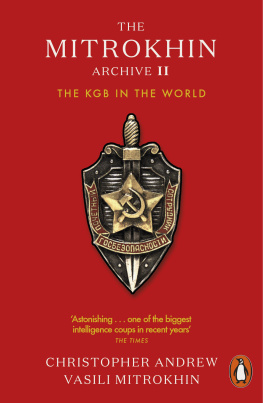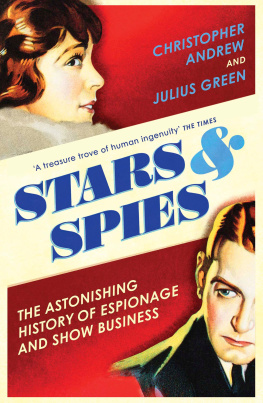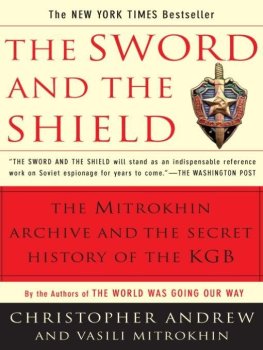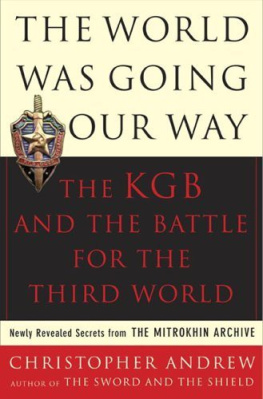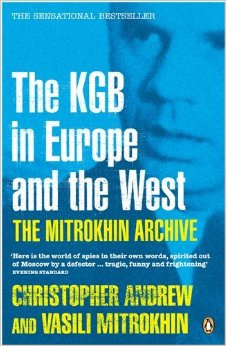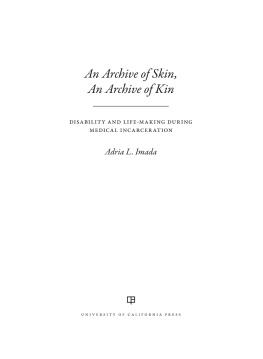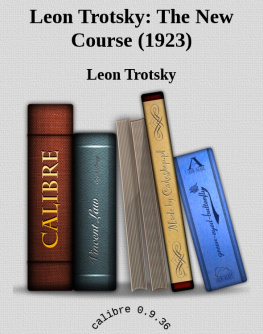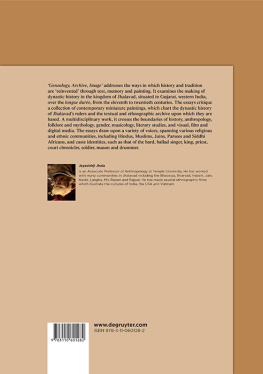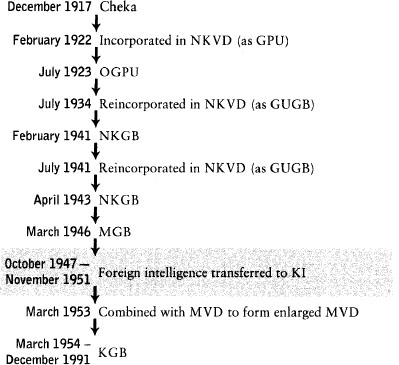Contents
Christopher Andrew
and Vasili Mitrokhin
THE MITROKHIN ARCHIVE II
The KGB and the World
PENGUIN BOOKS
THE MITROKHIN ARCHIVE II
Christopher Andrew is Emeritus Professor of Modern and Contemporary History and former Chair of the Faculty of History at Cambridge University. He is also chair of the British Intelligence Study Group, Founding Co-Editor of Intelligence and National Security, former Visiting Professor at Harvard, Toronto and the Australian National University, and has presented BBC Radio and TV documentaries. His most recent book is The Secret World: A History of Intelligence. The Defence of the Realm: The Authorized History of MI5, was a major international bestseller. His fifteen previous books include a number of path-breaking studies on the use and abuse of secret intelligence in modern history.
Vasili Mitrokhin was a former senior officer of the Soviet Foreign Intelligence service whose career spanned the period between 1948 and 1984. From 1972 to 1984 he supervised the transfer of the First Chief Directorates archive from the Lubyanka to the new KGB foreign intelligence headquarters at Yasenevo. When he defected and was exfiltrated to Britain in 1992, he created a sensation with this priceless treasure-trove of intelligence secrets. He collaborated with Christoper Andrew to produce the international bestseller The Mitrokhin Archive: The KGB in Europe and the West and this second volume. Vasili Mitrokhin died in London in 2004.
As the authors had hoped while writing these volumes, Mitrokhins original notes and files on which they are based, exfiltrated from Russia, have been available to researchers since 2014 at the Churchill College Archives Centre, Cambridge.
In Memory of
Vasili Nikitich Mitrokhin
(19222004)
and
Nina Mikhailovna Mitrokhina
(19241999)
The Evolution of the KGB, 191791
The functions, unlike the nomenclature, of the Soviet security and intelligence apparatus remained relatively constant throughout the period 191791. In recognition of that continuity, KGB officers frequently described themselves, like the original members of the Cheka, as Chekisty. The term KGB is sometimes used to denote the security and intelligence apparatus of the whole Soviet era, as well as, more correctly, for the period after 1954.
FOREIGN INTELLIGENCE
Founded in 1920, the foreign intelligence department of the Cheka and its inter-war successors was known as the Inostranni Otdel (INO). From 1941 to 1947 it was succeeded by the Inostrannoye Upravlenie (INU), also known as the First Directorate. From 1947 to 1951, the main foreign intelligence functions were taken over by the Komitet Informatsii (KI). From 1952 to 1991 foreign intelligence was run by the First Chief Directorate (save for the period from March 1953 to March 1954, when it was known, confusingly, as the Second Chief Directorate).
HEADQUARTERS
Foreign intelligence officers and directives to residencies referred to KGB headquarters as the Centre. In practice the Centre usually referred to the HQ of foreign intelligence rather than of the KGB as a whole. The organization of the KGB First Chief (Foreign Intelligence) Directorate is given in Appendix D.
KGB TERMINOLOGY
For detailed definitions, see Mitrokhin (ed.), KGB Lexicon.
Abbreviations and Acronyms
AFSA | Armed Forces Security [SIGINT] Agency (USA) |
ANC | African National Congress |
ARA | American Relief Association |
ASA | Army Security [SIGINT] Agency (USA) |
AVH | Hungarian security and intelligence agency |
AVO | predecessor of AVH |
AWACS | airborne warning and control system |
BfV | security service (FRG) |
BND | foreign intelligence agency (FRG) |
BNS | Bureau of National Security (Syria) |
CCP | Chinese Communist Party |
CDR | Committee for the Defence of the Revolution (Cuba) |
CDU | Christian Democratic Union (FRG) |
Centre | HQ of the KGB (or FCD) and their predecessors |
Cheka | Vserossiiskaya Chrezvychainaya Komissiya po Borbe s Kontrrevolyutsiei i Sabotazhem: All-Russian Extraordinary Commission for Combating Counter-Revolution and Sabotage (predecessor of KGB (191722)) |
CI | counter-intelligence |
CIA | Central Intelligence Agency (USA) |
CISPES | Committee in Solidarity with the People of El Salvador (USA) |
COCOM | Coordinating Committee for EastWest Trade (NATO and Japan) |
Comecon | Council for Mutual Economic Assistance (Soviet bloc) |
Comintern | Communist (Third) International |
CPC | Christian Peace Conference |
CPC | Communist Party of Canada |
CPCz | Communist Party of Czechoslovakia |
CPGB | Communist Party of Great Britain |
CPI | Communist Party of India |
CPJ | Communist Party of Japan |
CPM | Communist Party of India, Marxist |
CPSA | Communist Party of South Africa (later SACP) |
CPSU | Communist Party of the Soviet Union |
CPUSA | Communist Party of the United States of America |
CSU | Christian Social Union (FRG; ally of CDU) |
DCI | Director of Central Intelligence (USA) |
Derg | Co-ordinating Committee of the Armed Forces, Police and National Guard (Ethiopia) |
DGI | Direccin General de Inteligencia (Cuba) |
DGS | Portuguese security service |
DGSE | French foreign intelligence service |
DIA | Defense Intelligence Agency (USA) |
DISA | Direo de Informao e Segurana de Angola |
DLB | dead letter-box |
DRG | diversionnye razvedyvatelnye gruppy: Soviet sabotage and intelligence groups |
DRU | Direccin Revolucionaria Unida (El Salvador) |

